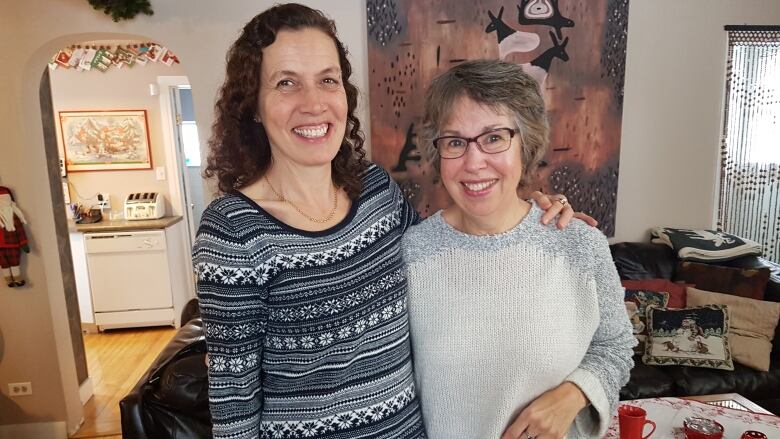Want to declutter? You should try the Swedish 'Death Purge'

When Ann-Sofie Persson moved to Canada 40 years ago, she didn't envision staying as long as she did. Now, she's made the decision to move back to her home country of Sweden.
Not surprisingly, Persson has accumulated many things while living in Canada. So now, she's looking at the Swedish cultural tradition of downsizing.
"It's called 'döstädning' which translated means 'death cleaning or the death purge,'" she explained.
"It's what people are doing before somebody passes away so that the relatives don't get left with the big chore of sorting out their personal things."

It's something that the Swedes start doing when they reach middle age — sometimes even sooner. Unlike the KonMari method, which advocates throwing things away or donating them for the most part, the Swedish death purge is more about giving unwanted items to family and friends.
Friends like Laurel Anderson-McCallum. She lives just a few doors down from Persson. And she's half Swedish so even though she wasn't aware of döstädning, it's an approach that comes naturally to her.
"I've always liked this business of neatness and spareness," she said. "Clutter makes me uncomfortable."
Both women are convinced it's healthier not to have too much stuff.
"It frees you up to do what you really want to do in life," explained Persson, "instead of having baggage and clutter to cloud your mind."
"This morning I was cleaning and putting things away and feeling better and better," added Anderson-McCallum.
Persson credits Swedish sustainability for this tendency. Many things come from nature.
"A lot of things are made of wood and glass," she pointed out.
In fact, one of the things that Persson cannot let go of is her crystal collection.
"[They're] not drinking glasses, but little sculptures. I love crystal. Crystal is alive," she shared. "It's got lead in it and it's actually moving all the time. It's a live object to me."
When she moves back to Sweden in a few years, she will be bringing her crystal with her.
In the meantime, Persson's friend Laurel is eyeing a pair of wooden clogs that might fit her. But she scores a Swedish tie for her husband instead.
